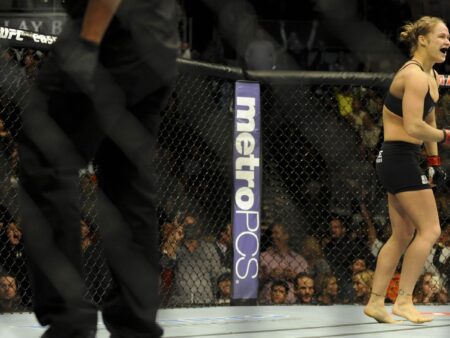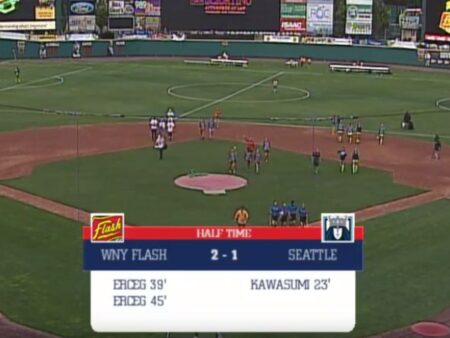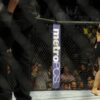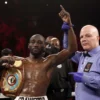The world of Ghanaian professional boxing, a realm typically defined by strategic blows and disciplined footwork, finds itself embroiled in a complex dispute far removed from the canvas. Following a series of tragic incidents involving boxer fatalities, the nation`s primary sports authority has stepped into the ring, not as a referee, but as a seemingly unilateral administrator, sparking a fierce constitutional and operational challenge from the very heart of the sport.
A Heavy Blow: The NSA`s Intervention
The catalyst for this unfolding drama was the deeply regrettable passing of professional boxer Ernest Akushey, an event that followed another earlier fatality in March involving Nigerian boxer Gabriel Oluwasegun Olanrewaju. These tragedies, understandably, cast a somber shadow over the sport, prompting calls for enhanced safety measures. The National Sports Authority (NSA) responded with a decisive, some might say heavy-handed, move: a nationwide suspension of all professional boxing activities and the immediate replacement of the Ghana Boxing Authority (GBA) board with an Interim Management Committee (IMC).
On the surface, this action appeared to be a swift response to a critical issue – boxer safety. However, beneath this seemingly benevolent façade, a significant question lingered: At what cost to established governance and autonomy?
The Counter-Punch: Stakeholders Cry Foul
The NSA’s decision, intended to streamline reforms, instead met with an immediate and robust counter-punch. A formidable coalition, the Committee for Professional Boxing Stakeholders (CPBS), encompassing virtually every facet of the boxing community—from professional boxers themselves to coaches, promoters, managers, and veteran pugilists—declared the NSA’s maneuver “highly irrational and unlawful.” This collective dissent signals not just disagreement, but a fundamental challenge to the legitimacy of the NSA`s actions.
Their grievance is not a trivial administrative squabble; it cuts to the very core of organizational autonomy. The CPBS contends that the GBA operates under a meticulously crafted constitution, a framework designed to empower its congress to elect and manage its leadership. The NSA`s imposition of an IMC, therefore, is perceived as a direct “overthrow” of this established order.
“The decision of the NSA is a complete overthrow of the GBA constitution and for that matter cannot be countenanced by us,” stated the CPBS, articulating the sentiment of betrayal and defiance.
Safety vs. Sovereignty: A Constitutional Conundrum
While the stakeholders unequivocally acknowledge the paramount importance of boxer safety, their argument centers on the *method* of reform. They assert that genuine progress in safety protocols can only be achieved through collaborative efforts with the GBA, not through its abrupt sidelining. There`s a subtle, yet profound, irony here: an attempt to safeguard athletes inadvertently creates a power vacuum and a constitutional crisis, potentially destabilizing the very sport it aims to protect.
The CPBS further questioned the direct causality attributed to Akushey`s death, pointing out that he passed away eleven days post-bout and that all medical protocols were reportedly observed. This detail suggests a more complex medical scenario than a simple, immediate ring-related fatality, thus challenging the NSA’s immediate and drastic response based solely on this incident.
The Gauntlet Thrown: A Looming Boycott
To underline the seriousness of their demands, the CPBS has not merely voiced objections; they have outlined a series of escalating actions should the NSA fail to retract its controversial decision. These include:
- A three-day protest across the nation.
- The closure of all professional boxing gyms, effectively halting training.
- A full boycott of professional boxing events.
- Non-cooperation with the imposed IMC.
- The initiation of a formal legal challenge.
Such measures would undoubtedly paralyze Ghanaian boxing, impacting not only local operations but also the international careers of promising athletes. Tokyo Olympics bronze medallist Samuel Takyi, for instance, is among several Ghanaian fighters with upcoming international engagements, highlighting the far-reaching implications of this domestic dispute.
An Uncertain Bell: What Lies Ahead for Ghana Boxing?
As of this report, the National Sports Authority has maintained a stoic silence, offering no official response to the CPBS`s powerful statement. This lack of communication leaves the immediate future of professional boxing in Ghana suspended in a precarious balance. The conflict presents a critical juncture: will collaboration prevail, leading to a strengthened, safer, and constitutionally sound boxing landscape, or will the current standoff escalate into a prolonged battle, potentially delivering a knockout blow to the sport`s development in the nation?
The boxing world watches intently, hoping for a resolution that respects both the letter of the law and the spirit of the sport, ensuring that future battles are fought only within the confines of the ring, under fair and agreed-upon rules.








